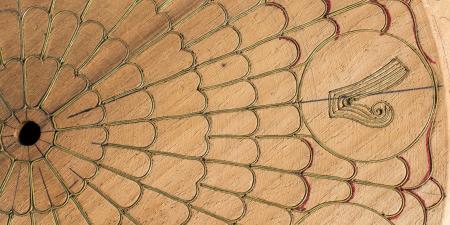So, the question is: "Why?"
Why would someone volunteer for a study that virtually guarantees no clinical benefit, may exclude him from receiving therapeutic doses of the drug when it is approved, may actually make his condition worse, and has 3 pages of possible side effects that begin with liver cancer and get worse from there?
I was recently presented the opportunity to participate in a research project to investigate the safety of gene transfer as a potential treatment for hemophilia. The study involves injecting a genetically modified adeno-associated virus directly into the liver. This virus will transfer a normal gene for human clotting factor IX into the liver, where it will begin producing the factor missing in people with hemophilia B. As a safety study, the dosage administered is purposefully low to minimize any side effects. The researchers expect the body's immune system to develop antibodies to this virus, so it is likely the subjects can receive it only once.
I'm a 48-year-old factor IX hemophiliac with a history that includes HIV, HepC, lymphoma, and bilateral knee and elbow replacements. As evident from this list, the medical community has done a great deal for me, and perhaps, by implication, to me. When I turned 40, I foolishly researched the life expectancy of those with hemophilia. I found it to be 34. As HIV takes its toll, I'm sure that number decreases; I just haven't had the nerve to look. A big part of the reason I enrolled in this study is what I refer to as "paying interest on all that borrowed time."
Looking back at this decision has been fascinating for me. Being an engineer by both training and disposition, I prefer decisions based, at least remotely, on facts. Here, there aren't many, and I made a decision based almost entirely on emotion. Decisions in either medicine or engineering typically affect other people, so each has a strict set of ethical and legal guidelines. There are years of research indicating that the proposed procedure can be done safely, but nobody knows for sure until it's been done.
I've been around medical research all my life and acutely understand its importance. Some of my pre-teen urine was used in early clinical investigations of Urokinase, a clot buster still in use nearly 40 years later. More recently, I was involved in clinical trials of some early anti-HIV cocktails. I credit those trials with my survival. And so, there's the rather vague "making the world a better place" reason. Logically, however, there's got to be an easier way; one that doesn't involve such personal risk. The procedure is uncomfortable and provides no benefit to me. The follow-up is long, tedious, takes 28 days away from home over the course of a year, involves sitting in the waiting room and hearing the size of your semen sample discussed, and trying to get containers of bodily fluids through airport security. It's not a matter of informed consent. I'm not sure how much better informed I could have been. All the facts were revealed in the consent process. It's the implications that were missing, and, as far as I can tell, they are impossible to write.
It all boils down to a leap of faith in the medical community, faith that may or may not be deserved. The medical community has done a great deal to keep me alive all these years. I have no doubt that I'm better off now than I would be if I had received less aggressive care. But, I also realize the possibility of human error (at best) or incompetence (at worst). I've been exposed to both, and am alive today, in part, through dumb luck. Knowing that I was participating in cutting edge research actually helped reassure me. I assumed that every move the researchers made would be watched and evaluated by review boards and others with no vested interest in the project. This layer of oversight added some security that, I felt, greatly reduced the chances of error or incompetence. This feeling of security was shaken severely when I heard a research nurse complaining that all these regulations were getting in the way of the science. My unspoken response was that if researchers weren't interested in cutting corners, there wouldn't be so many regulations.
Regardless of the mistakes I've witnessed, I still basically trust these people. Many of them have dedicated their lives to helping people like me, and, in a very real sense, I owe them my life. Maybe it's just my turn.



